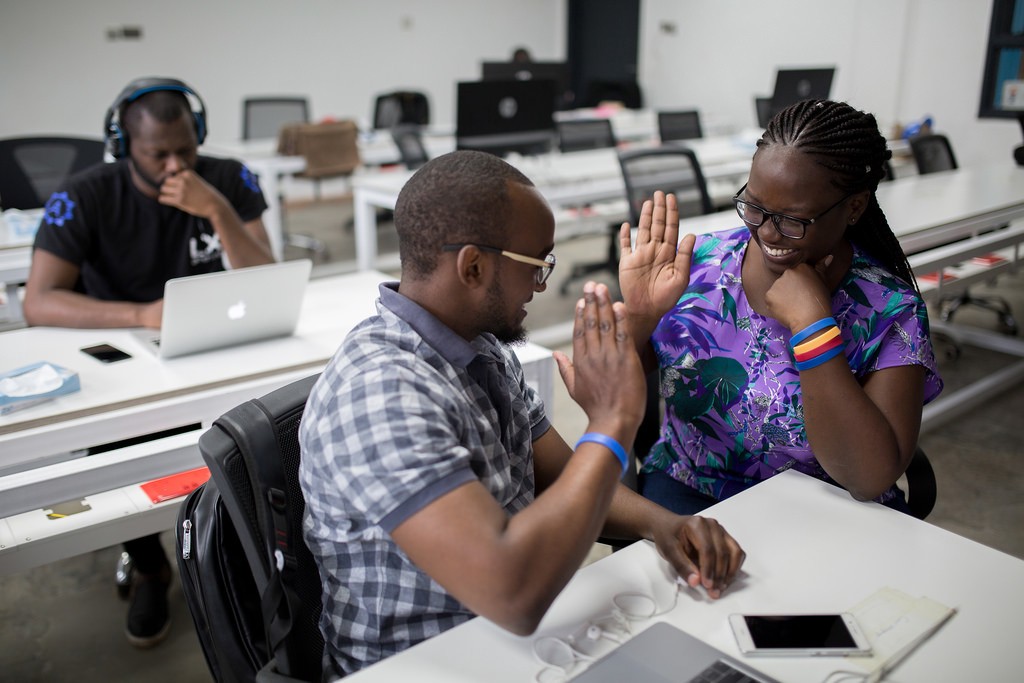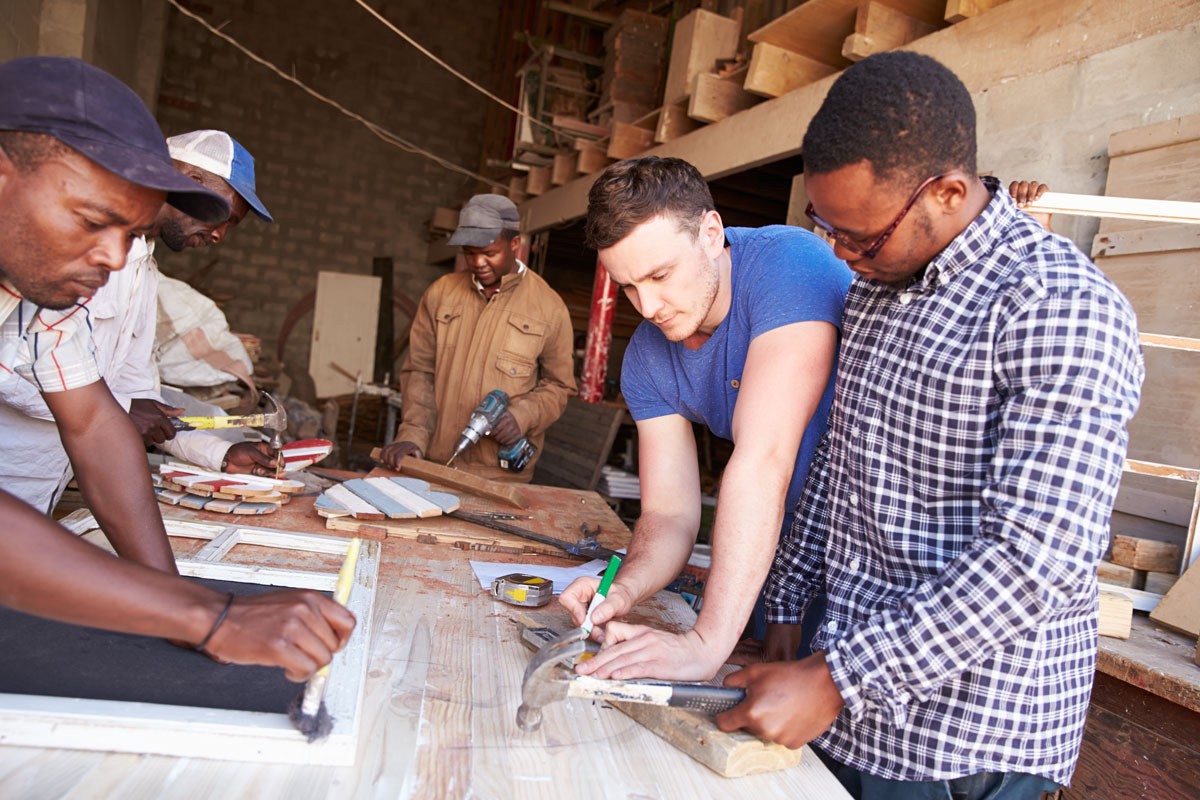The growth of e-commerce has already transformed the retail landscape and with double-digit annual growth predicted into the next decade
Canon, world-leader in imaging solutions, deciphers the importance of the settings and ambiences of physical shops as they become more than just a buying space, an opportunity for the brand to build and maintain relationships with its customers. We know that customers are becoming more and more demanding and that is why brands must be able to quickly develop their concept and this adaptability is made possible thanks to digital printing.
The growth of e-commerce has already transformed the retail landscape and with double-digit annual growth predicted into the next decade, this disruptive force shows no signs of abating. Yet although almost a third of consumers report shopping in-store less often, just under 90% of worldwide retail sales still take place in physical stores, reflecting their enduring appeal for both retailers and consumers.

For retailers, physical stores play a role in sales 79% of the time and excel at converting interest to sales and increasing the value. For consumers, shopping in-store provides things digital cannot; the atmosphere, face-to-face customer service and the ability to see and try products.
From the perspective of the consumer, shopping is about customer experience, not channels. This is why the movement of consumer spending from bricks-and-mortar retail to e-commerce doesn’t mean the end of physical retail. In fact, it is driving the transformation of physical retail into an immersive experience and opening opportunities for specialty print service providers (PSPs).
The new role of physical retail
Most retailers that continue to thrive are those embracing ‘omni-channel’ strategies; focusing on delivering a seamless customer experience across every channel where they have a presence – physical stores, catalogues, e-commerce, mobile, social media and more.
In this omni-channel scenario, physical and digital touchpoints must complement one another to deliver a unified journey. This, combined with customer expectation of greater personalization and preference for experiences over things, is driving a fundamental change in the role of the physical store. Clever retail brands capitalize on their stores’ ability to engage shoppers with the emotional and multi-sensory experiences that are missing from online purchases.
For design professionals and service providers active in retail décor, physical retail’s new role represents an exciting opportunity to create spaces where customers want to spend time.
From functional store to immersive brand experience
‘Retailtainment’ and ‘the experience economy’ are concepts that originated almost three decades ago but have only really begun to transform the retail landscape in the last 10 years. With retailers increasingly competing on the basis of ‘time well spent’ instead of just product or service offering, the retail landscape is moving towards showroom-style environments that encourage consumers to experience products or stores in which cafés, events or workshops invite shoppers to linger.
Cycling brand Rapha, for example, calls its 22 stores around the world ‘clubhouses’. They are cafés that screen live cycling, have programmes of events and rides and also sell the brand’s high-end cycling clothes and accessories. Italian food brand Eataly’s stores provide a space in which people can eat, shop and learn about Italian food, combining groceries and kitchenware with a café, restaurant and cooking school in more than 20 stores globally.
The vital role of décor in an immersive retail
Delivering both atmosphere and sensory appeal, interior décor is an essential consideration when creating an immersive experience that encourages consumers to spend time as well as money in-store. 59% of shoppers want an inviting ambience in-store and 51% of consumers are more likely to buy from brands whose stores are ‘interesting or different’, rising to 63% for consumers aged 18-34.
Driving footfall
Retailers seeking to stimulate repeat visits from consumers and attract new clientele need to refresh store environments regularly to make them visually enticing, keep up with changing fashion trends and maintain the surprise factor to encourage footfall. The flipside is that tired retail interiors can quickly turn off consumers and send them to competitors.
Encouraging dwell time
The décor of physical stores and pop-up retail spaces is becoming an important part of the customer journey. In addition to ensuring that shopping in-store is visually consistent with every other touchpoint where customers interact with a brand, décor has an unparalleled ability to create a welcoming ambience and make a space a pleasant place to spend time. Indeed, unless a brand specifically wants to lead with convenience, the best store designs are those that make consumers want to stay.
This is why we’re increasingly seeing décor being used more to create a branded experience and encourage dwell time than to directly drive sales. If you look at children’s clothing retail, examples run from a life-sized doll’s house in French brand, Bonpoint’s, children’s store to a playground that runs through the displays in Spanish brand, SuperMoments’, Valencia shop. In both these examples, retail décor is simultaneously creating an experience reflecting the ‘personality’ of the brands, and encouraging consumers to spend more time in the brand environment.
Enabling connected experiences
Almost half of the consumers’ inspiration for purchases today comes from social media, but its power is even greater when you consider that the most persuasive source of information for shoppers is recommendations from family and friends – that’s who make up most consumers’ social networks! So it’s no surprise that retailers are trying to engage shoppers on social media while in-store.
Mobile-empowered shoppers are taking more photographs in-store, so retailers are incorporating design features that encourage social sharing – from purpose-built selfie opportunity areas to ‘shareworthy’ fitting rooms. London department store Selfridges, for example, promotes “selfie sticks and Instagram-worthy backdrops” in the fitting rooms of its third-floor Designer Studio. This phenomenon also demands that interiors are regularly updated and kept looking fresh.
The opportunity for print
Retailers need pragmatic solutions that can create a particular ambience or reflect what is ‘trending’, but with minimal disruption and waste and often within tight budget constraints.
This plays to the strengths of digital print in terms of flexibility, turnaround time, cost-effectiveness and sheer diversity of materials. In turn, this creates exciting opportunities for PSPs, whether they come to retail décor from a background producing retail display graphics or bring décor expertise from other segments such as hospitality.
With contemporary media, digital print and finishing technology, PSPs can offer a diverse range of creative and functional retail décor applications from bespoke branded wallpaper and creative pop-up displays and features, to comprehensive retail refits comprising wall coverings, window and floor graphics, and branded surface décor on counter tops, changing room doors and so on.
The PSP’s ability to realize the retail brand owner’s creative vision and ensure that the décor elements can withstand the physical stresses of the retail environment should mean that customized printed décor is a key element in creating more welcoming, immersive and captivating in-store experiences
Kelechi Deca

Kelechi Deca has over two decades of media experience, he has traveled to over 77 countries reporting on multilateral development institutions, international business, trade, travels, culture, and diplomacy. He is also a petrol head with in-depth knowledge of automobiles and the auto industry.



























